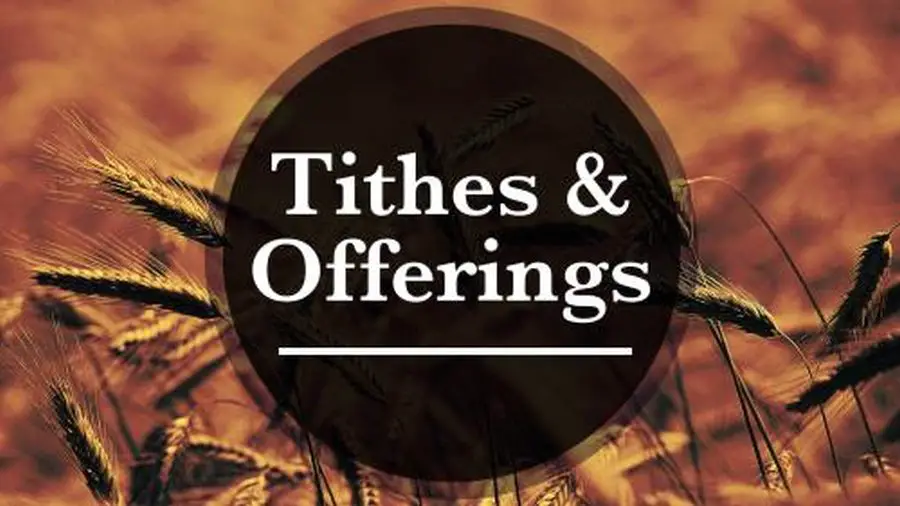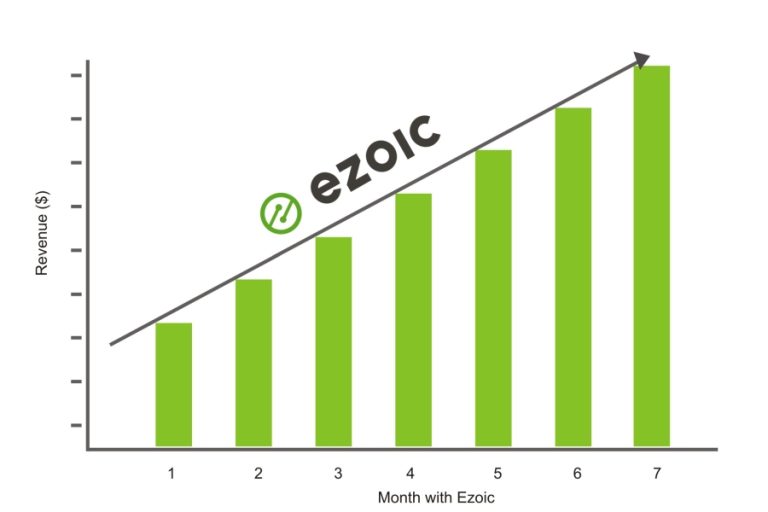[2025] Scriptural Exhortation And Encouragement About Giving Tithes And Offering
People need to be educated again and again to do the right thing. Not just because they may be completely ignorant of what to do, but also because they might have been exposed to wrong teachings.
Even in church, especially on giving, it is important that we make the people see the benefits of giving tithes and offering, and always give encouragement about giving tithes and offering. So, this post contains short exhortation on giving, and bible verses to let them see what the word of God says concerning giving to the Lord and for His work.
It is important to let church members know that giving is a key to accessing more in the provision/blessing system of God. And how they should be intentional about giving tithes and offering.
This compilation contains several scriptural ways to encourage people to give to God and the work of God. That is scriptural encouragement about giving tithes and offering. Any of these can be used as offering messages from the bible.
Exhortation About Tithe And Offering Verses: Church Offering Scriptures
Giving is one of the important subjects of the scriptures believers should understand and practice. Sometimes, they may need to see it from more than the regular scriptural they are familiar with giving.
So, here are exhortation about tithe and offering verses in the bible. Of course, there are more than 100 bible verses about tithes and offering;
1. Now may He who supplies seed to the sower, and bread for food, supply and multiply the seed you have sown and increase the fruits of your righteousness. 2Cor.9:10 (NKJV).
This explains that God doesn’t only give us food to eat, he also gives seeds to be sown.
2. Then He will give you rain for the seed which you will sow in the ground, and bread from the yield of the ground, and it will be rich and plenteous; on that day your livestock will graze in a roomy pasture. Isaiah 30:25.
This gives an assurance of the fact that God is intentional about multiplying our seeds sown.
3. “For as the rain and the snow come down from heaven, And do not return there without watering the earth And making it bear and sprout, And furnishing seed to the sower and bread to the eater. Isaiah 55:10.
This also affirms the truth that God doesn’t just give bread to be eaten, but that he also gives seed to be sown in form of tithe and offering.
4. “But this I say: He who sows sparingly will also reap sparingly, and he who sows bountifully will also reap bountifully.” 2Cor.9:6
No doubt, this scripture on giving, emphasizes the measure of our reward on giving. It ex[plains that we reap in accordance to how much we sow.
5. “Give, and it will be given to you: good measure, pressed down, shaken together, and running over will be put into your bosom”. Luke 6:38 NKJV
This talks about the benefit of giving tithes and offering. It also includes the rewards of giving to the poor.
6. Every good gift and every perfect gift is from above, coming down from the Father of lights, with whom there is no variation or shadow due to change. James 1:17
This serves as a reminder that there is nothing we have that has not been given to us by God. So our Giving is only giving back a portion of the lump sum that has been given to us.
7. And he sat down opposite the treasury and watched the people putting money into the offering box. Many rich people put in large sums. And a poor widow came and put in two small copper coins, which make a penny.
And he called his disciples to him and said to them, “Truly, I say to you, this poor widow has put in more than all those who are contributing to the offering box. For they all contributed out of their abundance, but she out of her poverty has put in everything she had, all she had to live on.”
Mark 12:41–44
This story is enough encouragement about tithes and offering. It is obvious how the Lord is interested in what we give. It also tells us that we have no excuse for not giving even if we have just a little.
More so, this story, which is one of Jesus’ short exhortations on giving, reveals to us that how much we give is not measured by amount but by the proportion of what we give to what was given to us (God’s Provision).
8. If I speak in the tongues of men and of angels, but have not love, I am a noisy gong or a clanging cymbal. And if I have prophetic powers, and understand all mysteries and all knowledge, and if I have all faith, so as to remove mountains, but have not love, I am nothing.
If I give away all I have, and if I deliver up my body to be burned, but have not love, I gain nothing. 1 Corinthians 13:1–3
This is an exhortation on the importance of the heart with which we give our tithe and offering. It is not just about giving, it is about giving in love.
9. Now concerning the collection for the saints: as I directed the churches of Galatia, so you also are to do. On the first day of every week, each of you is to put something aside and store it up, as he may prosper. 1 Corinthians 16:1–2a
This is an example of the collection of offering even in the early church. This should remind us that giving should be intentional and planned for. We ought to be deliberate about giving tithes and offering.
10. The point is this: whoever sows sparingly will also reap sparingly, and whoever sows bountifully will also reap bountifully. Each one must give as he has decided in his heart, not reluctantly or under compulsion, for God loves a cheerful giver.
And God is able to make all grace abound to you so that having all sufficiency in all things at all times, you may abound in every good work. 2 Corinthians 9:6–8
This is another verse that explains what the condition of our heart should be, when giving to the Lord , for His work or to the poor.
Related Post: Powerful Ways To Get A Breakthrough
Sermon / Short Exhortation On Giving
This is a short exhortation on giving tithes and offerings that will help you to educate the people and also serve as encouragement about giving tithes and offerings. If you understand this, You can teach the people in a short time, and you can also go the extra length to let them see several scriptures about giving.
“Now he that ministereth seed to the sower both minister bread for your food, and multiply your seed sown, and increase the fruits of your righteousness.” 2Cor. 9:10 (KJV).
When you pay attention to this particular scripture, you’ll see two categories of God’s supply;
1. God supplies seed to the sower.
(You remember Matthew 13:1-25 the parable of the sower where the sower went forth to sow the seed.) What was sown, i.e the seed was actually supplied by the Lord. And you’ll agree that no seed in the world is produced, they exist by nature, which is God’s provision.
This establishes the truth that God is the One who provides SEED.
2. God supplies bread for food.
“Do not be anxious about what you shall eat, drink or wear…for your Father knows that you are in need of these things…” (Matthew 6:31-33).
“For by these He judges peoples; He gives food in abundance.” (Job 36:31)
The key here is that God supplies both seed and bread to believers.
The bread is for food; to be eaten. And believers should learn how to receive God’s provisions of bread and also learn how to eat and enjoy them.
God wants you to eat your breed and enjoy it. The scripture says; “you shall eat in plenty and be satisfied, and praise the name of the Lord your God “(Joel 2:26).
The provision of food for the children of Israel in the wilderness was massive. They were to eat and be full with only caution of not keeping till the next day.
God was teaching them the principle of daily provision. Like Christ taught in the Lord’s prayer; “Give us this day our daily bread” (Matthew 6:11).
The point here is, don’t be apologetic about eating your bread. Enjoy it. It is the Lord’s supply. Receive it with thanks and bless God for it.
“You shall eat in plenty and be satisfied, And praise the name of the LORD your God, Who has dealt wondrously with you; And My people shall never be put to shame.” Joel 2:26.
“He causes the grass to grow for the cattle, And vegetation for the labor of man, So that he may bring forth food from the earth.” Psalm 104:14
Now, considering the seed, as seen in the scriptures, so it is for sowing.
The scriptures above make us know that seeds are not to be consumed but sown. When we sow our seeds, which in this light is our giving or our gift, God multiplies it and increases our fruit of righteousness according to 2nd Corinthians 9:10.
The very important thing is that God needs the seed He has given you to multiple and makes provisions back to you. But if you don’t sow the seed, you are placing limitations on your multiplication.
Surprisingly, 2nd Corinthians 9:10 has more to say about the seed than the bread. It talked about multiplying our seed that is sown.
Notice what it says; …and multiply your seed sown (2Cor.9:10b). It means that He supplies the seed, then we take the seed and sow it, then God steps in again and multiply that seed we have sown and rewards the act of righteousness with increase.
Therefore, giving or sowing our seeds is an act of righteousness before God.
God doesn’t multiply bread. He does multiply seeds, according to our text.
And if you consider very well in the two occasions Jesus fed the thousands, He only multiple the little presented to him, in the first instance, it was the launch of a lad containing just five loaves and two fish that was blessed and it multiplied to feed 5,000 people with 12 baskets left (Matthew 14:13-21).
The boy’s launch is a seed there. So, it was multiplied. God will always need something He can multiply back to you. That is why giving, and sowing of seed were instituted as a principle in the new testament.
So, when God is asking you to give, the truth is that He is trying to give to you not to take from you.
When He asks you to give, He wants to bless you. Your giving is a pointer to multiplication. It is a principle that never fails. It is an eternal principle.
You have to know that many times, both the seed and bread are consumable. The boy’s launch typified as seed earlier is actually the boy’s food. It is food for a boy but a seed to feed 5,000 grown-up men coming under the power of multiplication which only applied to seeds.
Always Separate the seed from the food
This is to say that; when God gives provisions, you should always separate which is food and the one that is a seed.
Don’t just eat everything. Doing that will mean eating your multiplication, your increase, or your future. That is very powerful. And you know what? God is so good and gracious that the seed is always smaller than the food.
Don’t eat your seed with your bread or food.
Benefits Of Giving Tithes And Offering
If you know about farming, you will know that there is a way you harvest tubers of yam so that you don’t consume everything. There is a portion in the tuber that is reinvented into the soil to produce seedlings for another season of planting.
Whereas, that part could also have been consumed with the whole yam; but that would mean forfeiting harvest in the coming season.
Looking at the principle of tithe also, God gives you 100% then he demands 10%. As the seed.
See sharing formula! God wants you to take 90% as food and 10% as seed. And this 10% is not what God actually takes away from you in the long run, He only demands that you sow it as the seed which in return is multiplied back to you in multiple folds.
It is safe to say, giving is the multiplying system or principles of God for a believer. When practiced, a believer is able to receive as a further harvest that which he sows.
“But this I say: He who sows sparingly will also reap sparingly, and he who sows bountifully will also reap bountifully.” 2Cor.9:6
“Give, and it will be given to you: good measure, pressed down, shaken together, and running over will be put into your bosom”. Luke 6:38 NKJV
By this, we will see the circle of provisions, where you get bread and seed, you eat the bread and sow the seed, again. Then the seed sown brings harvest again in multiple folds. You again eat bread from this and take the seed out to sow. This is very interesting. This is a system of prosperity for believers.
You see, you can count the number of seeds in orange but you cannot count the number of oranges in a seed. That is the power of a seed. It carries the blessing of multiplication when sown.
Whereas, bread doesn’t carry that same power. This is why giving is great. You eat your bread and sow your seed for multiplication.
Eating both your bread and seed is very hazardous. And sowing both your seed and bread is not wisdom. Your bread is to sustain you at present while your seed waits for you in the future.
The conclusion here is that when you receive God’s provision which you always receive by His mercy, give to the Lord which is a way of sowing your seed. And enjoy the larger provision as given to you by the Lord.






